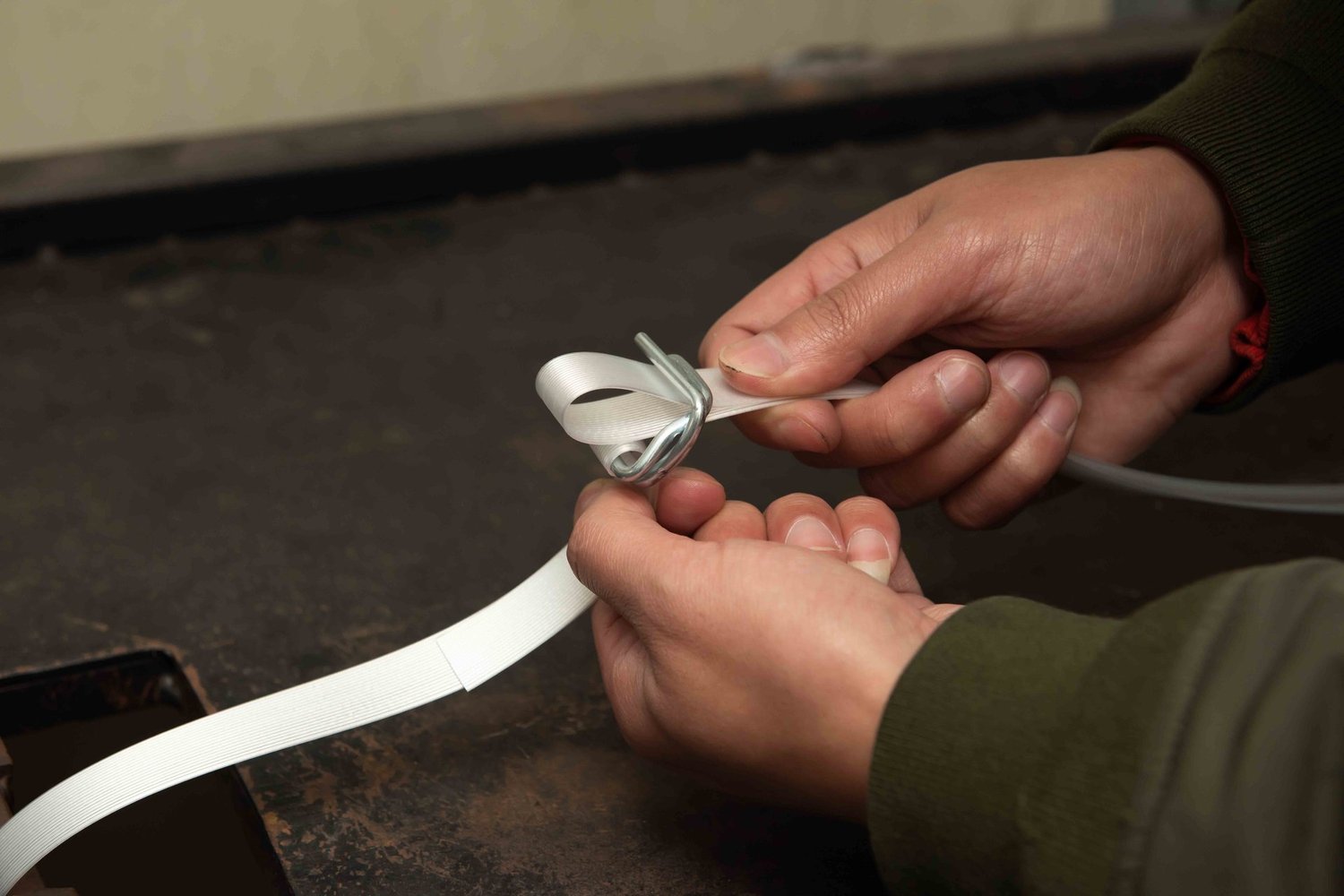When it comes to securing products for transportation or storage, strong and durable straps are essential. Two popular options are polyester and polypropylene straps. Each of these materials has its own unique advantages and disadvantages. In this article, we will explore the difference between polyester and polypropylene straps.
Polyester Straps
Polyester straps are made from a strong, synthetic fiber that is capable of withstanding heavy loads. They are known for their durability and resistance to stretching. These straps are an excellent choice for securing heavy goods, such as metal and lumber.
Polypropylene Straps
Polypropylene straps are made from a thermoplastic polymer that is lightweight and flexible. They are less expensive than polyester straps and are commonly used in the packaging industry. They are also ideal for securing light to medium-weight products, such as cardboard boxes and plastic containers.
Strength
When it comes to strength, polyester straps are the clear winner. They have a higher tensile strength than polypropylene straps, which makes them suitable for securing heavier loads. Polypropylene straps are not as robust, but they are still strong enough to hold most products securely in place.
Elongation
Polyester straps have a lower elongation rate than polypropylene straps. This means that the straps will not stretch as much under stress. This characteristic makes polyester straps less likely to recoil or loosen during transport. In contrast, polypropylene straps have a higher elongation rate. This allows them to stretch and conform to the shape of the products they are securing. It also means that they are more susceptible to loosening during transportation.
UV Resistance
Polyester straps are highly resistant to UV radiation, which means that they will not break down or become brittle when exposed to sunlight. They are an excellent choice for outdoor storage or transportation. Polypropylene straps, on the other hand, have a lower UV resistance. They are not recommended for long-term outdoor use.
Water Resistance
Both polyester and polypropylene straps are resistant to water. However, polyester straps are more hydrophobic, which means that they repel water better than polypropylene straps. This characteristic makes polyester straps an excellent choice for products that may be exposed to moisture during transport or storage.
Environmental Impact
Polyester straps are considered to be more environmentally friendly than polypropylene straps. Polyester is a recyclable material that can be reused or repurposed. Polypropylene, on the other hand, is not readily recyclable and is more likely to end up in a landfill.
Cost
Polypropylene straps are less expensive than polyester straps. This makes them an attractive choice for businesses that need to secure products on a budget. Polyester straps, however, offer better strength and durability, which can ultimately save money in the long run by reducing the need for frequent strap replacements.
Ease of Use
Polyester straps are stiffer and less flexible than polypropylene straps, which can make them more difficult to handle and apply. Polypropylene straps are more pliable, which makes them easier to maneuver and adjust. This characteristic can be beneficial when securing products with irregular shapes or sizes.
Conclusion
In conclusion, both polyester and polypropylene straps have their own unique advantages and disadvantages. Polyester straps offer superior strength and durability, while polypropylene straps are more budget-friendly and easier to handle. When choosing between these materials, it is important to consider the specific needs of your products and select the strap that best fits those requirements.

